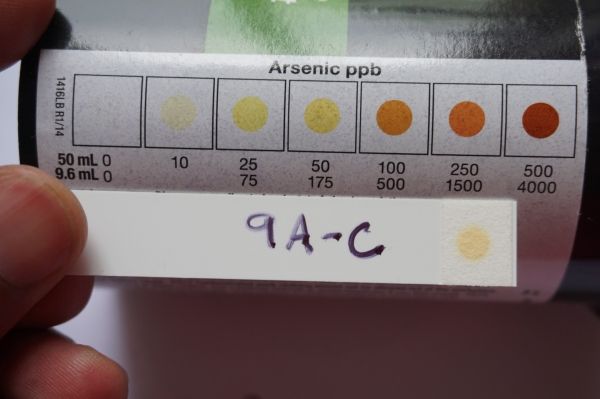Researchers at the University of Michigan have raised serious concerns with the performance of some arsenic test kits commonly used in Bangladesh to monitor water contamination.
Their study tested eight commercially available arsenic test kits, and found that several—including the most widely used in Bangladesh—performed poorly.
“The implication is that well waters could have arsenic well above the safe drinking water limit, even though the test result says the level is much lower and safe,” said Kim Hayes, U-M professor in civil and environmental engineering and one of the study’s lead researchers.
“These findings point to the need for manufacturers to ensure the accuracy of kits, and in particular, that the calibration color charts provided are consistent with the kit performance,” Hayes said. The study was published online in November in Water Research and will appear in the March 2020 print edition of the journal.
Arsenic in water is a long-standing problem in Bangladesh. About 25 million Bangladeshis face serious risks of developing skin lesions and cancers due to unsafe levels of arsenic in drinking water. Testing water quality and sharing the results with residents has been one of the most effective interventions for reducing the number of households consuming arsenic-contaminated water.
Read more at University Of Michigan
Photo: After a series of steps with different chemical reagents, the color that develops on a test strip is compared to a reference chart provided by the kit manufacturer. A darker color indicates a higher concentration of arsenic in the water sample. Photo credit: R. Reddy


